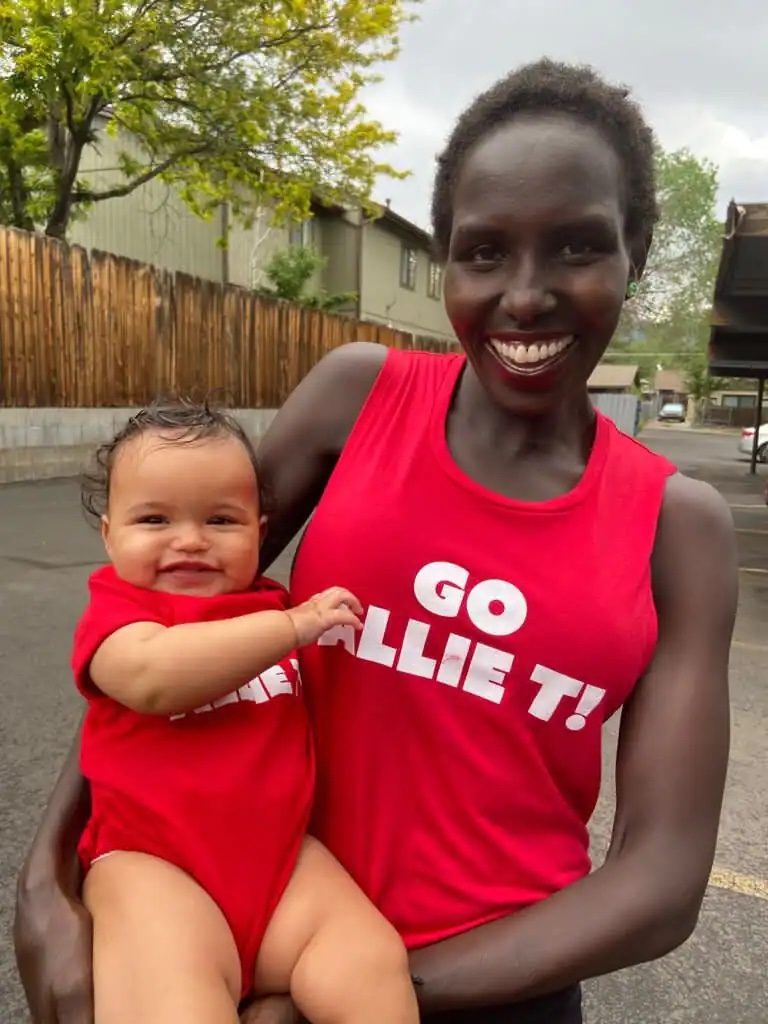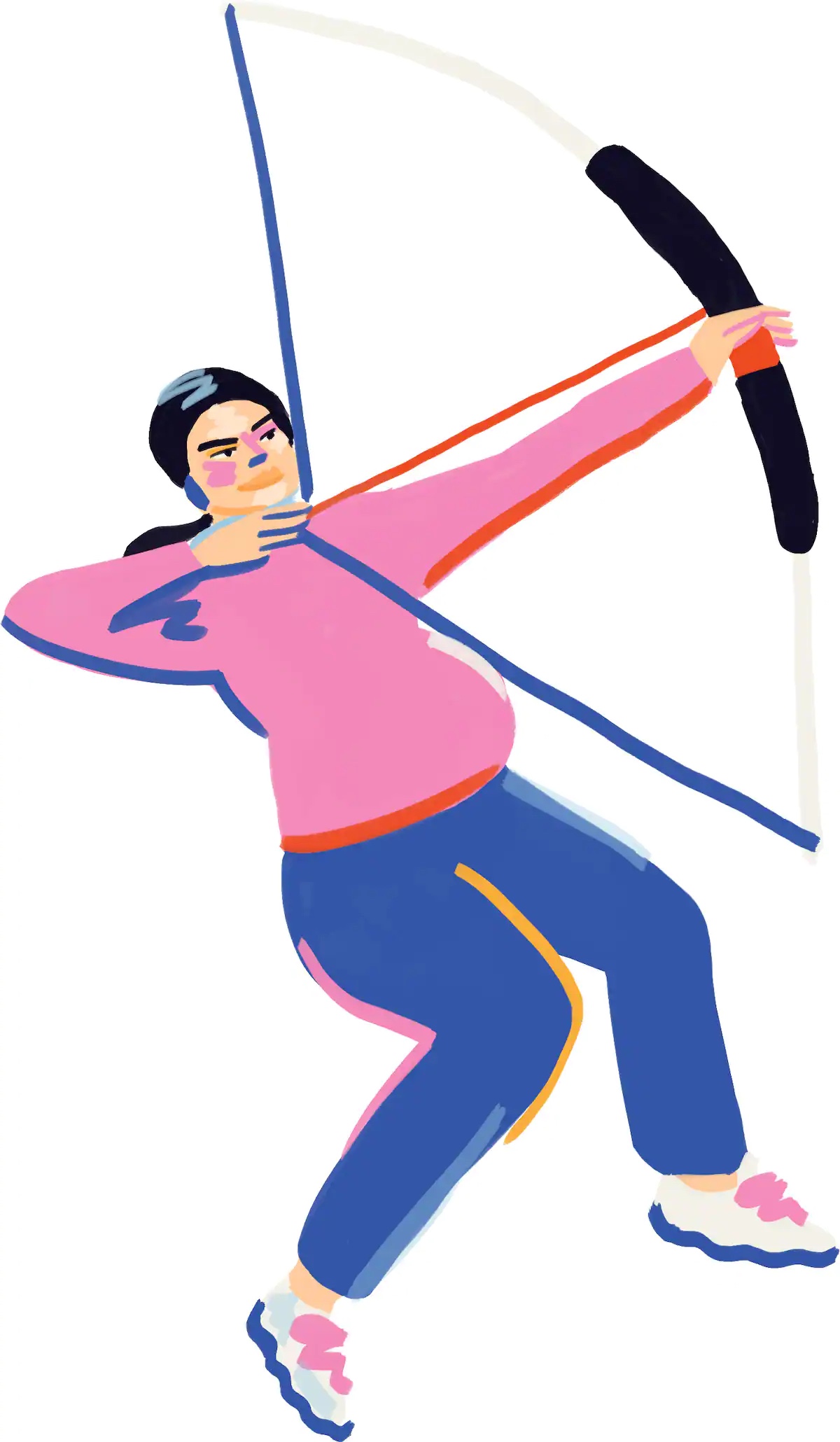From Shelly-Ann Fraser-Pryce to Allyson Felix to Aliphine Tuliamuk, elite athletes are juggling babies with their careers. But it’s complicated.
— Read on www.washingtonpost.com/sports/olympics/interactive/2021/olympics-mothers/
Preview:
Years later, mother and daughter would have a heart-to-heart, and what came pouring out of the mother’s was a lifetime of guilt and regret. In the fall of 1958, Wilma Rudolph had all but abandoned her infant daughter to go off and pursue her Olympic dreams, the child’s mere existence hidden from the world. That was the way it had to happen in the late 1950s and early 1960s, particularly for a Black woman whose baby was born out of wedlock.
“They weren’t putting Black women on Wheaties boxes in 1960,” Yolanda Rudolph said recently. And though Wilma Rudolph was successful on the track, winning three gold medals as a sprinter at the 1960 Rome Olympics, it could never be enough to compensate for what she had lost.

Get the latest news and results from the Tokyo Olympics
chevron-right
“She told me it made her sad because she missed a lot of my milestones,” said Yolanda Rudolph, who spent the first 11 years of her life being raised by her grandmother in Clarksville, Tenn., as Wilma, who died in 1994, became an Olympic icon.
“She missed being with me when I found out there was no Santa Claus — because I saw Grandma bringing all the stuff in that Momma had bought,” she said. “She missed stuff like putting something under my pillow when I lost a tooth. She was sorry I always had to explain to the other kids where my momma and daddy was. She was crying. I said, ‘Momma, why you crying?’ She said, ‘Because I left you in Clarksville too long.’ ”
Story continues below advertisement
This summer, at least a dozen moms will compete for Team USA at the Tokyo Olympics, among them some of the most accomplished and famous female athletes of their era: Allyson Felix, Alex Morgan and Diana Taurasi, to name a few. Countless other Olympian moms will compete in Tokyo for other nations.
None, it is safe to assume, will have to hide their motherhood from the world. Quite the opposite: For Olympian moms, that aspect of their lives is an essential part of their stories, their motherhood journeys highlighted in soft-focused television profiles, their triumphs often celebrated with victory laps or podium photo ops with their infants or toddlers in their arms.
Allyson Felix celebrates with daughter Camryn after finishing second in the final of the 400 meters at the U.S. Olympic trials. (Patrick Smith/Getty Images)
“We’re in a powerful moment in time: the female rising,” said beach volleyball star Kerri Walsh Jennings, a mother of three who competed in five Olympics, winning three gold medals.
Walsh Jennings, 42, has been around long enough — her first Olympics was in 2000, and she fell just short of making a sixth team this summer — that she has witnessed that rise firsthand. When she started as a pro, she said, career and motherhood was an “either/or” proposition.
“You had a choice: either put off having babies or wait until you’re done competing,” she said. “When I started, women were mostly waiting.”
For as long as they have been letting women in the Olympics, there have been moms in the Olympics. In the 1900 Paris Olympics, the first to include women, American Mary Abbott tied for seventh place in women’s golf — with Margaret Abbott, her daughter, winning gold. In London in 1948, Fanny Blankers-Koen, a 30-year-old mother of two, gained worldwide fame by winning four golds in track, later earning the title of female athlete of the century from track’s international governing body.
And statistical website Olympedia.org lists 22 women who have competed in an Olympics while pregnant, including Malaysian shooter Nur Suryani Mohd Taibi, who was eight months pregnant at the 2012 London Olympics.
But it has taken decades for motherhood to be considered a normal part of a female athlete’s journey and for the public — and more importantly, corporate America — to regard it as something more than a liability for a woman’s career.
In 2019, U.S. Olympians Felix, Kara Goucher and Alysia Montaño began speaking out about Nike reducing their sponsorship compensation after they became pregnant and had babies. It became a watershed moment, with Nike leading a parade of companies that changed their policies regarding maternity pay and benefits.
Story continues below advertisement
“The sporting industry is a male-dominated industry, and [becoming] a mother was sort of looked down on, like, ‘Ugh, great, there goes her career,’ ” Goucher recalled recently. “I remember trying to downplay it and not acknowledge it. Whereas now I feel like we’re acknowledging [it]. … But at the time? We weren’t there yet.”
For American marathoner Aliphine Tuliamuk — who will compete in Tokyo as the mother of a nearly 7-month-old daughter, Zoe — her own, overwhelmingly positive experiences with sponsors in the past couple of years are a product of that fight, for which she considers herself a direct beneficiary.
“I cannot believe someone like Allyson Felix, who is the best of the U.S. Olympic movement, couldn’t keep her sponsorships because she got pregnant,” said Tuliamuk, 32. “Thankfully, Allyson Felix, Kara Goucher and Alysia Montaño talked about their stories because it changed the conversation and made things possible for me.”
Even as the acceptance and support for Olympian moms have grown, one issue that can never be fully solved, perhaps because it is an emotional as opposed to a material concern, is the internal tug-of-war — commonplace among mothers of young children — between career and family. In the case of Olympians, whose prime years as athletes overlap almost exactly with their prime years as child-bearers, the difficult choices and painful sacrifices are perhaps doubly so.
Aliphine Tuliamuk with daughter Zeo Cherotich Gannon (Family photo)
“Our sacrifice is our family,” Russian artistic swimming legend and five-time Olympic champion Svetlana Romashina said in a heartbreaking interview posted in April on the website of FINA, the international governing body for aquatic sports. During training for Tokyo, she said, she saw her daughter, Alexandra, who was born in 2017, just two days each month.
“How shall I explain to my child that we are to see each other just two days a month for the whole year? Not possible,” she said. “My child is small, but she understands a lot. … My heart breaks, and I feel I am a bad mother.”
As Tuliamuk found out this summer, the fight for protections and considerations for Olympian moms is still being fought. For months, she was told she would be unable to bring Zoe with her to Tokyo, despite the fact she is breastfeeding, because of the Tokyo 2020 organizing committee’s strict ban on foreign spectators, including family members, as a result of the coronavirus pandemic.
She petitioned for an exception, but every indication was the ban was ironclad. The prospect of a forced separation was unfathomable, Tuliamuk said, and made her question whether to compete in Tokyo at all. Only in late June, less than a month before the Opening Ceremonies, did word arrive that Zoe and other nursing babies of Olympians would be permitted.
It was one more inflection point in the larger fight for rights for female athletes. And, ultimately, it was one more victory.
“In a way, I feel like I’m that turning point,” Tuliamuk said of her own place in the ongoing struggle. “I’m the point between the past, where female athletes wouldn’t talk about their pregnancies because they were afraid they would lose their sponsorships, and the future. Now other athletes will be able to look at my story and say if she did it, I can do it, too. It’s a new era.”
[Sign up for our Tokyo Olympics newsletter to get a daily viewing guide and highlights from the Games]
THE PLANNING
An Olympic athlete’s schedule is highly regimented, from the long cycle of the Olympic quad to the daily training routine. Having a baby amid that takes planning — and maybe some luck.
I
n March 2020, when the Tokyo Olympics were postponed a year by the pandemic, Aliphine Tuliamuk started counting months, working backward from July 2021. When she finished counting, the number she landed on gave her both a flicker of hope and a new sense of purpose. Two months. That was the window.
It was time to start trying to have a baby.
Having qualified for Tokyo by winning the U.S. Olympic marathon trials in February 2020, Tuliamuk, along with now-fiance Tim Gannon, had been planning to start a family afterward. When the Games were postponed, Tuliamuk the marathoner was willing to wait another year to compete. But Tuliamuk the hopeful mother was not willing to put off starting a family.
— Read more on www.washingtonpost.com/sports/olympics/interactive/2021/olympics-mothers/
ADVERTISEMENT
ADVERTISEMENTUp to 30% off Gift Sets |










